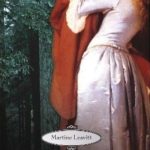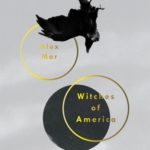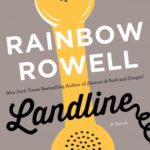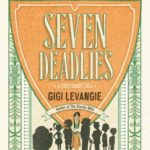Pride and Prejudice was the first real love story I read — and no matter how many I’ve read since then, each is measured against Austen’s tale and left wanting. The same is true with the film adaptations.
I’ve seen the 1995 made-for-television version approximately 100 times, and I love it more each time I see it; I despised the 2005 version starring Keira Knightley and that watery sad-sack Matthew Macfadyen.
But when a reader raved in the comments section of my first Musing Mondays post about the 1940 adaptation starring Laurence Olivier and Greer Garson, it immediately went on my Netflix list. Nothing could be worse than Knightley…right?
Acting, schmacting!
I love Olivier — he was fabulous as Maxim de Winter in “Rebecca,” which was filmed the same year as “Pride and Prejudice.” But while he played the humorous side of Darcy well, the serious/brooding/prideful side was missing. And that’s what makes the character. For a classically trained Shakespearean actor, I thought he brought little to the role.
And if I was unimpressed by Olivier, I was downright upset with Garson. She was so great in 1942’s “Mrs. Miniver,” but I found her portrayal of Lizzie Bennet to be…pretty terrible. She plays Lizzie with this overly-breathy, big-eyed naivete. It’s not there all the time, but it comes out just often enough, and in the worst places, to be really annoying. The Elizabeth that Jane Austen wrote—and Jennifer Ehle played in 1995—is snarky, but really only in defense of herself and her family. Garson’s version is downright spiteful, and it made me like her less (although I partially fault the writers for this characterization).
Both Olivier and Garson are doing what one of my former professors calls “schmacting” — in other words, overacting. Rather than making serious moments more dramatic, it is distracting and makes the characters weaker. The proposal scene loses all its punch due to the crying, sighing, and lip-biting.
Costumes and writing
The clothing of Jane Austen’s time was pretty simple: a lot of empire waists, simple patterns, and maybe a feather or two in the hats of the wealthier women. So I was horrified to find the film filled with “ensembles” such as this (seriously, who did the costumes for this film? I will slap them):
And if the schmacting and terrible costumes don’t get you, the bad script certainly will. Obviously a certain amount of adjustment is required to fit the entire story into 118 minutes, but I wonder about some of the exclusions the writers made.
More so, however, I wonder at the additions. There are multiple completely new scenes, including one between Lizzie and Caroline Bingley that, while showing Lizzie’s spirit, also manages to make you like her less. There are also new plot points, including the Bennet’s apparent decision to move out of Longbourn after Lydia’s elopement.
It’s this last one in particular that gives me fits. Obviously an elopement was a scandal in Austen’s time — especially when it didn’t actually end in a marriage. And it was certainly possible for a daughter to damage her family’s reputation by engaging in such behavior. But would it have really necessitated the removing of the entire family from their home, selling it, and moving to a different city? Somehow the writers managed to make the matter even more serious (by having the family packed up and ready to leave) and simultaneously less so, by having everyone in a fight about whether or not they can bring the music box and a pet parrot!
Final thoughts
I lay my dislike of this film firmly at the doorstep of the director (Robert Z. Leonard) and the writers (one of whom was Aldous Huxley, ugh); the writers did a shoddy job cutting of plot points and adding useless scenes, and the director allowed every actor/actress to “schmact” endlessly.
Yes, the funny parts are funnier, and there is a more prominent undercurrent of silliness which made the comical scenes more comical. But Pride and Prejudice is not a comedic tale, and should not have been treated as such. Overall, I found this film to be almost unpalatable.
Do you agree with my assessment, or am I being too harsh? Is there a particular adaptation of a book you just can’t stand? Let me know in the comments!







Your assessment is probably correct from the standpoint of the detail with which you have viewed it. However, from a purely theatrical standpoint I still maintain the 1940 version best captures the spirit of the book. The TV versions are so precisely literal that they would be the standards by which to measure cinematic translations of P & P–they are very good. However, when I praised the Olivier version I was not going into specifics of this or that in the film, but the over all experience of watching a movie for entertainment value and with this film I was entertained.
When I read the book, I went into it without much knowledge of what I was getting into. And not being a huge fan of that literary era I did not particularly get into it initially and had to force myself to read it. I found myself laughing a number of times, but I didn’t know whether the book was supposed to be funny or not–it just struck me as funny. When I saw the 1940 film version I found it to be very funny and realized that my assessment of humor in the novel appeared to be correct.
You apparently watch films in a very different way than I do and that’s fine. I was immensely entertained by the film and the spirit in which it was presented. I felt that spirit adequately captured the spirit of the novel for me and provided me a film-viewing experience that included enjoyment and insight as to what I think Jane Austen was trying to convey in her novel.
I’m glad you checked the film out and gave your opinion of it.
Lee
Tossing It Out
Thanks for checking back in, Lee — I was hoping you would.
It’s extremely difficult for me to separate the novel from its film adaptations. I’ve read Pride and Prejudice dozens of times, and on two of those occasions it was for advanced English classes. I don’t say this to try and seem snotty, but merely to indicate that this is a story with which I’m pretty familiar (and more than a little obsessed).
And for the double whammy, I majored in theatre in college — so I’ve seen “schmacting” in action (and done it myself, I’ll bet). Sadly, I think it’s just a part of movies from this era; I can immediately call to mind a half-dozen movies where a svelte woman clutches her hair and screams when confronted with something scary. It’s the style of acting that I think was popular in the 40s and 50s, and it drives me crazy.
I’m also disappointed in Garson’s portrayal of Elizabeth. She’s got faults, to be sure, but I never before counted spitefulness and excessive weeping among them. Garson (with the guidance of the director, I’m sure) managed to make me not like Elizabeth; Garson made her seem both mean and weak, neither of which are true for Austen’s character.
Perhaps I watched this movie with a much more critical eye than I do other films; but that’s a danger one must deal with when watching film adaptations of their favorite novels. After you’ve read and analyzed a book so much, and its characters have become a part of your literary life, it’s hard to see them portrayed in ways that you yourself hadn’t imagined.
Pride and Prejudice has some really great funny moments, ones that Austen put there to poke fun at certain behaviors. But there are so many serious themes that I can’t consider it to be a comedic novel. And to me, portraying it as such means that those serious themes lose their power and meaning.
Thank you for pointing me toward the film. Even though I didn’t like many aspects of it, I’m glad to have a great conversation about it.
Yikes. The first one was painful to watch.
Pride and Prejudice was my first completed Austen. I’d previously attempted to read Emma and still can’t finish the damned book. I found myself laughing quite a lot, but overall, I didn’t find it to be a comedic read. Same with Wuthering Heights, I remember laughing nonstop for about 40 pages in WH at Hindley. But no one would dare call Wuthering Heights a comedy.
And while I get that ardent Austen fans will require faithfulness to the book, my favorite adaptation of an Austen book is the 1999 Mansfield Park, which differs on many different levels from the book, and interweaves much of the story of Austen herself. However, I’ve never seen the Colin Firth adaptation until seeing this snippet here, and I’m now intrigued.
Thanks for this wonderful post.
BTW, are you now on Google+? I added someone I think is you….but not 100% sure….
Interesting: I can’t get through reading Emma either. I’ve seen the Gwyneth Paltrow adaptation many times, and I really enjoy the story; I just can’t seem to get past those first 50 pages.
Wuthering Heights just made me want to fling the story against a wall. I’ve never been a fan of overly-dramatic books, and that one’s like a soap opera. Plus there are multiple Catherines and Heathcliffs, and I could never care enough about them to keep them all straight. My favorite Bronte by far is Charlotte — I could read Jane Eyre over and over again.
I haven’t seen the Mansfield Park adaptation of which you speak, but I have heard of it. It was generally well-received, i think. I’ve never read that story, though.
You should definitely see the Firth/Ehle film. It’s actually a mini-series, so it’s about six hours long. But it’s really true to the book, and the acting is fabulous. Just thinking about it makes me want to watch it again (I may or may not own it on DVD).
Yes, I am on Google+, and I got an email today saying that you’d added me or friended me or put me in a circle or whatever it is you do on Google+. I tried to log in, but they’re having some issues, so I can’t do anything other than see your profile (wall? circle? I really need to read up on this). Happy Friday!
I suspected that your background was what you’ve described here and I can understand why you would feel the way you do. We are of similar background but on opposite sides of the spectrum.
I was an English Lit major with more of an interest in Southern and Modern American Lit and I did not care much for the literature of Austen’s era and never read anything by her until P & P.
I also have a life long theatrical background in show biz with roots in vaudeville type entertainment. I have had fun with schlocky emoting and appreciate the silly over-acting of the silent movie era which greatly influenced films til the late 40s. I thoroughly enjoy the type of acting in the 1940 P&P, but there are indeed other film examples where it does get pretty bad. To me it is good fun and I thought within this style it was well-executed in 1940 P&P.
I’m not sure about our age difference, but having grown up in the 50s I was weened on these old films and they hold great sentimental value for me as well as the entertainment they provide. I love the old movie musicals. And I would much prefer to watch the old gangster films where guys could come across as tough and never utter a profanity.
And I’m probably critiquing from a much different perspective as well. My assessment of a movie usually comes down to how much I was entertained and did the film provide me any special personal insight about that film or its source material or otherwise. So I was definitely looking at different things than you were. I’m sure that goes for my reading of the book as well. To be honest, my real reason for reading P&P at all was because I wanted to read P&P& Zombies but I didn’t think I would get the full impact of that book unless I read the original. If it hadn’t been for the Zombie version I doubt whether I would have ever read the original or seen any of the filmed versions–I would have been missing out.
Thanks for your clarification and I hope my explanation clarifies my side.
Lee
Tossing It Out
We are indeed on opposite sides of the spectrum — I don’t think I read anything published after about 1945 until I was late middle school (my “contemporary reads” before that time were things like the Little House on the Prairie books). I read a lot of stuff that was set in Europe or in the early days of America. I honestly don’t think I read a book that was written by someone other than an Anglo until high school.
I’ve also never been a very silly person, so silliness in general and “schmacting” in particular make my teeth grind.
I believe that the 1940 film was well executed. The cinematography and casting were good, and I enjoyed seeing the genuinely humorous moments Austen wrote being played up a bit more than usual. And I imagine that the film was a great success when it was originally released. I just think that the movie-going audience has changed so much that it’s difficult for someone my age (mid-20s) to appreciate the more vaudevillian aspects of films of that era. Many people don’t enjoy Austen’s writing itself, much less over-the-time adaptations of it.
Ah, Pride and Prejudice and Zombies. I’m sure Austen is positively rolling in her grave. :p I’ve read that as well, and actually enjoyed it — mainly because I was expecting it to be absolutely ridiculous. I think that if I had stoppd to recall what comedies of the 1940s were like, I might not have felt so personally affronted by the film. 🙂 It all comes down to perspective, I suppose.
Happy Friday!